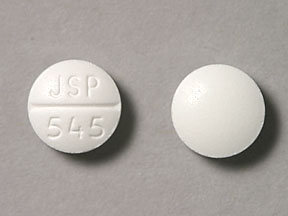Digoxin Interactions
There are 440 drugs known to interact with digoxin, along with 13 disease interactions, and 1 alcohol/food interaction. Of the total drug interactions, 30 are major, 353 are moderate, and 57 are minor.
- View all 440 medications that may interact with digoxin
- View digoxin alcohol/food interactions (1)
- View digoxin disease interactions (13)
Most frequently checked interactions
View interaction reports for digoxin and the medicines listed below.
- Advair Diskus (fluticasone / salmeterol)
- Aspirin Low Strength (aspirin)
- Colace (docusate)
- Coreg (carvedilol)
- Coumadin (warfarin)
- Crestor (rosuvastatin)
- Eliquis (apixaban)
- Entresto (sacubitril / valsartan)
- Fish Oil (omega-3 polyunsaturated fatty acids)
- Flomax (tamsulosin)
- Lantus (insulin glargine)
- Lasix (furosemide)
- Lipitor (atorvastatin)
- Lyrica (pregabalin)
- Metoprolol Succinate ER (metoprolol)
- Metoprolol Tartrate (metoprolol)
- MiraLAX (polyethylene glycol 3350)
- Nexium (esomeprazole)
- Paracetamol (acetaminophen)
- Plavix (clopidogrel)
- Pradaxa (dabigatran)
- Protonix (pantoprazole)
- Spiriva (tiotropium)
- Synthroid (levothyroxine)
- Tylenol (acetaminophen)
- Vitamin B12 (cyanocobalamin)
- Vitamin C (ascorbic acid)
- Vitamin D3 (cholecalciferol)
- Xanax (alprazolam)
- Xarelto (rivaroxaban)
Digoxin alcohol/food interactions
There is 1 alcohol/food interaction with digoxin.
Digoxin disease interactions
There are 13 disease interactions with digoxin which include:
- accessory AV pathway
- bradyarrhythmia/AV block
- hypercalcemia
- hypocalcemia
- hypokalemia/hypomagnesemia
- preserved left ventricular ejection
- renal dysfunction
- vasoconstriction
- ventricular arrhythmia
- acute MI
- hyperthyroidism
- hypothyroidism
- thiamine deficiency
More about digoxin
- digoxin consumer information
- Compare alternatives
- Pricing & coupons
- Reviews (17)
- Drug images
- Latest FDA alerts (3)
- Side effects
- Dosage information
- Patient tips
- During pregnancy
- Support group
- Drug class: group V antiarrhythmics
- Breastfeeding
- En español
Related treatment guides
Drug Interaction Classification
| Highly clinically significant. Avoid combinations; the risk of the interaction outweighs the benefit. | |
| Moderately clinically significant. Usually avoid combinations; use it only under special circumstances. | |
| Minimally clinically significant. Minimize risk; assess risk and consider an alternative drug, take steps to circumvent the interaction risk and/or institute a monitoring plan. | |
| No interaction information available. |
Further information
Always consult your healthcare provider to ensure the information displayed on this page applies to your personal circumstances.


